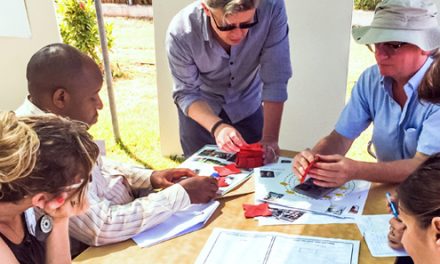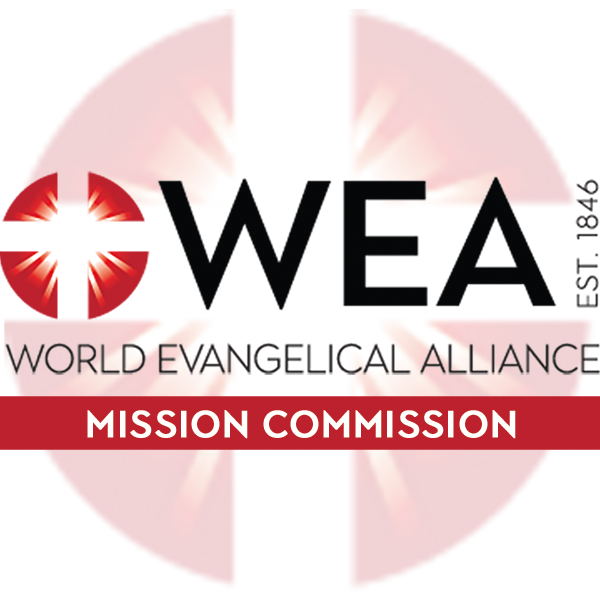MISSIONS IN A COVID CRISIS: EARLY IMPLICATIONS
[12 Minute Read]
Dear fellow participants in God’s mission,
Grace and peace to you in the name of the Lord Jesus Christ.
SARS-CoV-2 has swept across the world like a wrecking ball. Now that the world has all but stopped and people have been assigned to their homes as much as possible, the implications of a viral pandemic are starting to become acutely apparent. In the English-speaking world, new phrases have quickly gained common usage. One of those is “new normal”. Whatever that might mean, it assumes that what we thought of as ‘normal’ prior to the crisis will never be experienced again. That goes for global Christian missions as much as anything else. This post briefly establishes some historical context to what will become a COVID-19 commentary and (where applicable) part of a Future of Missions blog series. It introduces early indicators of pandemic impact that will have a profound affect on our understanding and practice of global missions from this point forward.
Our generation must accept what was and move into the future, accepting our responsibility to do better with what we know now.
Birth & Renewal
Change does not happen overnight, but the turning point is often marked in history by a rupturing event. COVID-19 is our rupturing event. I believe it marks a full-stop to around 220+ years of missions as we have understood it to be since William Carey published his “Enquiry into the obligation of Christians to use means for the conversion of the heathens” (1792). What we usually call “the modern missionary movement” emerged during a period of world history known as the era of Western European expansion—the modern colonial era (c1760s-1870s). Its missiology was, understandably, shaped by the knowledge systems of that era. This is not the place to delve into the rightness or wrongness of those perspectives. Suffice it to say, much good came of it and some bad came of it. Our generation must accept what was and move into the future, accepting our responsibility to do better with what we know now.
During my 30 years of missions involvement, I have seen the light fade from the revitalisation of global missions in the 1970s. The World War II generation emerged with fresh fervour for the rebuilding of a world ravaged by xenophobia and unrestrained destruction. That generation gave us Western-missions champions such as Billy Graham (born a little earlier), John Stott, Loren Cunningham, George Verwer and Ralph Winter. The Lausanne Congress in 1974 decisively answered the question “should we stop sending missionaries?” with a hard “no”. Led by Ralph Winter, global missions started to focus afresh on parts of the world where the gospel had not yet been seeded: hidden/forgotten/unreached peoples. Data collection, statistical analysis, global mapping and improved marketing ensued. The colonial-expansion paradigm that inspired William Carey was still alive and kicking in the minds of Evangelical missiologists—there was a task to finish.
Status Quo
For 220+ years, the missiology that has dominated the global missions community has been colonial and industrial. It emphasised expansion and treated missions as a project we are contractually obligated to complete. Projects require motivation to mobilise materials and management to guide methodologies toward the achievement of outcomes. It has an unfortunate by-product of depersonalising processes and objectifying outcomes. Motivation for the missions ‘project’ was extracted from particular readings of Scripture, interpreted through a grid of expansionist industrialisation.
Interpreting Matthew 28:18-20 as “the Great Commission” was probably invented very early in the European age of exploration, but it gained popularity during the colonial-industrial era. It was used to great motivational effect by the fathers of modern mission such as J. Hudson Taylor. Seen through different eyes though, this passage speaks more of an opening scope for a gospel no longer limited to the borders of Israel than an objective we are commanded to achieve (there is an imperative but not necessarily a command in the Greek). Similarly, Matthew 24:14 is a promise to encourage believers to endure the hardship that was to come, rather than the end goal of a task they were set to accomplish. Here, as in Acts 1:8, Jesus is declaring what God will do, not what we should do. Our role? To obey. But isn’t that what going, preaching, and witnessing is? Yes, it is, but as the Spirit leads, not as our carefully crafted strategies might determine. COVID-19 is revealing the limitations of our small designs.
50 years from now, should Christ tarry, I wonder if Church historians will declare our century the era of indigenous missions.
Localisation
Our border crossing days have been cut short. The planes are grounded, expatriates are being brought home, funds are diminishing, access is closing. Do we see the Church rising? I expect so. We can look back to recent missions history, for example in China, to see that when missionaries have been forced out of a nation or region, the indigenous Church grows—often in the compost of hardship, such as persecution brings. It’s as if the gospel seed, so lovingly planted by expatriate believers is finally able to draw in the nutrients of the new soil and sprout a hybrid tree like those whose leaves bring healing to the nations (Revelation 22:2). The unique gospel-tree grows, fruits, seeds and replicates itself with remarkable multiplicity—and the repatriated missionary gives praise from afar for God’s glorious grace.
There will remain missions roles for the people of God from every nation to play. All peoples have a unique contribution to make toward extending the knowledge of God-in-Christ in all the earth. But, 50 years from now, should Christ tarry, I wonder if Church historians will declare our century the era of indigenous missions. If airline industry insiders are to be believed, the barriers that have been thrown up around the world in the last few months do not look like coming down for years. Flying is likely to become an elitist pursuit once more with prices beyond the pay scale of your average tourist, let alone the short-term trans-boundary missionary (can that ever be a ‘thing’ again?). Border crossings will certainly be more complicated, government surveillance will be pervasive and their control amplified, the flow of outside resources to indigenous believers will be constricted, at least for a while.
In addition to equipping the saints for acts of service at home, local churches must also become missions stations, seeding and resourcing extension ministries beyond their immediate residence to those within reach who are not yet aware that access to the Kingdom of God is open. There remains a here and there responsibility for every community of Christ-followers. The Spirit moves with a centripetal and centrifugal pulse, bringing in and sending out—God breathing new life on creation.
Let us move into a new era together, supporting one another, where “The Great Commitment” becomes the objective of missions.
Our Mission is to Love
As we #stayonmission wherever the Lord has planted us, remember that the most powerful witness in the days of increasing nationalism and xenophobia ahead of us will be our loving relationships with the ‘stranger’. This is the core to a missions call—to love, and live in harmony with, those who are not like us. You can love the Lord your God, one another, yourself and your neighbour, but to “love your enemies” (Luke 6:27-36) is what the Spirit of mission leads us into. They might just become your friends. They might become part of your family in-Christ. When that happens, and the world sees culturally diverse groups of Christ-followers dwelling in loving, sharing, growing unity, then they will know and believe that the Father lovingly sent the Son.
In loving unity, the Father sent the Son. For the sake of loving unity the Son sends us—with a message and ministry of reconciliation that is witnessed by our unity. As the COVID-19 wrecking ball continues to swing and this rupture closes the door on a colonial-industrial era that brought us the Great Commission, let us move into a new era together, supporting one another, where “The Great Commitment” becomes the objective of missions, most clearly defined in John 17:18-24. This is our witness to the ends of the earth. A new era is come. It is now time to reclaim this ancient way as our new normal for global missions. Love one another. Then the world will know and believe.
Pray
- That the ‘Spirit of mission’ will clearly lead us according to God’s will for the new era ahead of us.
- For spiritually mature disciples throughout the world to follow God’s call to bless those who have little or no knowledge of God. That those disciples of Christ will be well equipped to witness to the reality of the whole-of-life gospel that speaks of a God who is able to transform people and their societies.
- Wisdom for experienced cross-cultural missions workers and missions organisations as we adjust to new ways of serving in God’s global mission. The challenges will be many but the rewards will be worth it.





